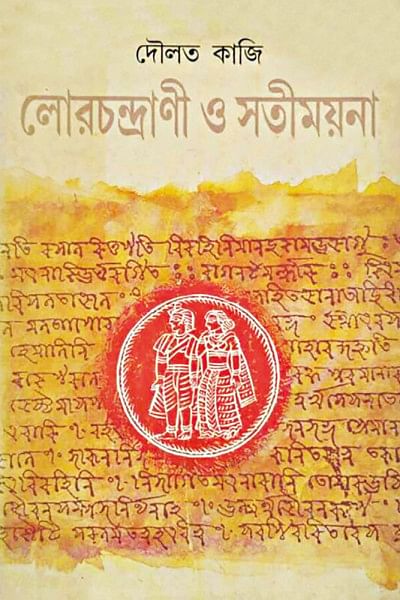The Battle over Punthi Sahitya’s Legacy: Abdul Karim’s Perspective

Abdul Karim Sahitya Bisharad passed away in 1953, just a year after the historic language movement. That same year, he gave his final speech on Radio Pakistan in Dacca, providing an overview of the core of Punthi Sahitya, which had been the focus of his lifelong endeavours.
He provided a clear definition of Punthi Sahitya and the different types it encompassed. According to him, Punthi Sahitya referred to the literature that was not influenced by Western culture, and it was a shared heritage of both the Hindus and Muslims. However, the two communities had different approaches in their contributions to this literary tradition.
Karim divided the course of this literature into some broad categories. He found that Muslims' works of literature were diversified, whereas Hindus' contributions were primarily religious. Hindus had tirelessly churned out such kavyas for centuries in the forms of Ramayana, Mahabharat, Shivayan and various Mangal Kavyas where the literary motifs were mostly aimed at depicting the deeds and magnanimity of deities to achieve Moksha or emancipation.
Muslims also significantly participated in composing religious literature. They passionately exposited Islam's lessons and beauty to the native people. He said most of these texts were translations from Arabic and Persian, though these verse-makers didn't translate them literally, rather they imaginatively used various localized metaphors and attributes in their works.
Karim posited that it was the Muslims who laid the foundation of the secular and romantic genre in Bengali literature. He said Daulat Kaji first anticipated this form, being a realist narrator. Such romantic literature often included translations from Arabic and Persian literary compositions, but the Bengali Muslim authors transformed these human stories into almost original through imagination and fantasy. Karim named a few famous medieval poets who wrote both secular and religious forms of literature, like Magon Thakur, Alaol, Abdul Hakim, Sabirid Khan, and so forth.
Besides the religious and secular-romantic genres, Karim stated that the mystic and ethereal form was another characteristic of Punthi Sahitya. This form was greatly influenced by the Sufism of Iran, Vaishnavism of Bengal, and the literature of Hindu Yoga. He observed that this form of composite literature emphasised the inner mind that transcends boundaries. Most of the saints in this land did not place much significance on the ritualistic aspects of religion, but rather highlighted the inner state of religion.
In the wake of Pakistan's establishment, Abdul Karim's lifelong pursuit of retrieving and deciphering the old specimens of Bengali literature was challenged by a section of Pakistani intellectuals striving to mold a version of Bengali language history that aligns with Pakistan's state ideology.
An influential editor of that time mentioned that they would love to uphold the tradition of the Punthi Sahitya but with a selective approach. Only contents that reflected the virtue and heroism of Islam would be included as the heritage of Pakistan. He emphasised the need to sanitise the entire Punthi Sahitya heritage by purging it of Hindu elements, even at the cost of sacrificing the composite nature of Bengali literature.
The editor added that the influence of Vaishnavism among Bengali Muslims had been the root of their decadence. It isn't clear what he meant by attributing Bengali Muslim 'decadence' to Vaishnava influence. But one could imagine that he drew an assumption from Bankim Chandra Chattopadhyay, who – in his attempt to invent nationalism in India – had made an ideal type of Sree Krishna, aligned with heroism and statesmanship, unlike the (Gaudiya) Vaishnava version of Sree Krishna, who is depicted as more affectionate and lovable.
It's interesting to note that the Pakistani editor employed the same logic as Bankim Chandra Chattopadhyay when trying to establish the literary roots of Pakistan. This editor sought to exclude the composite heritage of ancient Bengali literature, as nationalism often picks and chooses certain forms of inheritance to construct its legacy.
The origin of Vaishnavism in Bengal is a contested topic. Pramatha Choudhury wrote in 1931 in the Monthly Prabasi that Vaishnavism in Bengal developed as a response to Islam in India and that the creed of Islam considerably influenced it. Arguably, Choudhury's position is the opposite to that of the Pakistani editor, but jingoism leaves no room for multiple interpretations or opposing viewpoints. Thus, that brilliant editor attempted to disown the entire course of ancient Bengali literature while simultaneously narrowing the scope of Bengali literature into one selective channel.
Abdul Karim was well aware of the limitations of nationalistic thought in fashioning a 'Pakistani language'. He had discovered many Punthis that made him confident to think differently. In 1950, just three years after the partition of Bengal, he wrote that a broader perspective was needed to discuss Bengali Punthis. It would be foolish to limit the scale. He argued that 'as the aspects of knowledge are vast, similarly, literature doesn't have borders. Racism is impossible in literature.'
Priyam Pritim Paul is pursuing his PhD at South Asian University, New Delhi.

 For all latest news, follow The Daily Star's Google News channel.
For all latest news, follow The Daily Star's Google News channel. 



Comments